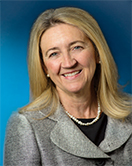Progress

“C-Path is going to grow substantially, and I see us taking on new disease areas. I see us becoming a real leader in the technical aspects of curating and aggregating data so that it becomes meaningful to drug development, and I think that can be a paradigm shift for the future.”
– Martha Brumfield, President and CEO, C-Path
From six employees in the Tucson office when its work began in 2005, to 12 consortia and an international presence in 2015, the Critical Path Institute has expanded on its vision of meeting many of the needs outlined in the FDA’s Critical Path Initiative (CPI). On October 20, 2015, C-Path held a briefing for Congressional staff in Washington, to highlight the decade of progress made on the regulatory science opportunities identified in the CPI.
Dr. Janet Woodcock, Director of the FDA’s Center for Drug Evaluation and Research, who spoke at the briefing, cited C-Path’s work on data standards with the Clinical Data Interchange Standards Consortium (CDISC) as a “positive example of an effort to create standardized data collection.” She also pointed to C-Path’s work with biomarkers in polycystic kidney disease as “building a new kind of scientific reliability through the development of predictive biomarkers and revolutionizing the clinical trial network system.” (In August, the FDA issued the Polycystic Kidney Disease Outcomes Consortium (PKDOC) a positive qualification for total kidney volume as an enrichment biomarker in ADPKD clinical trials. The European Medicines Agency rendered a similar opinion to PKDOC in November.)
C-Path is becoming a nerve center for consensus science, collaboration, and data management. The milestones the organization reached in 2015, such as being selected by the WHO’s Special Programme for Research and Training in Tropical Diseases (TDR) to to host a new TB clinical trial data-sharing platform (TB-PACTS), exemplify the scope, global reach, and significance of C-Path’s work. In October, Parkinson’s UK joined forces with C-Path to launch the Critical Path for Parkinson’s Consortium (CPP), which brings together pharmaceutical companies and academic partners to establish best practices and efficient protocols for clinical trials in early Parkinson’s.
The year also saw C-Path making substantial advances in the pediatric research space. The International Neonatal Consortium (INC) was launched in May; this global collaboration intends to forge a more predictable regulatory path for evaluating neonatal therapies. The Pediatric Trials Consortium (PTC), launched in October, is an entity which will enable C-Path to establish a new independent nonprofit organization focused on the efficient evaluation of innovative drugs for children by delivering regulatory-quality data needed for product labeling. Launched in August in partnership with Parent Project Muscular Dystrophy (PPMD), the Duchenne Regulatory Science Consortium (D-RSC) will work to establish drug development tools to enable more efficient development of new treatments for this genetic disorder affecting boys: a disorder which results in premature death and for which there is no cure.
Praise
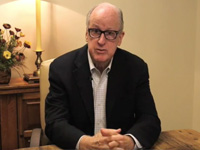
“The potential of C-Path to enable us to begin to solve disease problems with new drugs and new medical treatments for a variety of diseases is hugely important.”
—Bill Harris, President, Science Foundation Arizona
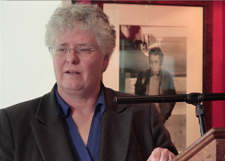
“With its launch, I think C-Path was very brave, because it was not an area where public-private partnerships were common. This was new ground, to bring together stakeholders from all of these different arenas: from industry, from academia, from parent and patient organizations, from professional societies, and from the regulators and other government entities.”
—Susan McCune, MD, Deputy Director, Office of Translational Sciences, Center for Drug Evaluation and Research, FDA

“[C-Path is] a very good example of collaboration, commitment, and delivering.”
—Jordi Llineras, Department Head, Product Development Scientific Support, EMA
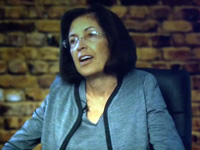
“Arizona is known for the five ‘C’s’: cattle, cotton, citrus, copper, climate. C-Path has added a sixth ‘C’: collaboration.”
—Lynn Hudson, PhD, Chief Science Officer, C-Path
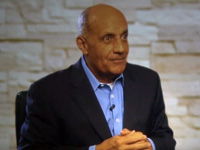
“The leaders in these jobs have to be diplomats—I would call them ‘health diplomats’ as well, because it’s not only understanding the science, it’s understanding the culture, and how to bring these disparate groups together and see a common vision.”
—Richard Carmona, MD, MPH, FACS, former Surgeon General
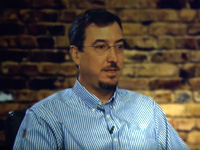
“I think over the next five to ten years, we’re going to be doing what we do best, and that’s creating more consortia, qualifying drug development tool and novel methodologies, and accelerating the whole drug-development process.”
—John-Michael Sauer, PhD, Executive Director, PSTC, C-Path
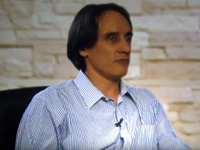
“I see us becoming a global hub for anything having to do with improving the process of drug development.”
—Klaus Romero, MD, MS, FCP, Director of Clinical Pharmacology, C-Path

“[C-Path’s goal] is not the advancement of a lucrative product, or anything like that. It’s the overall general welfare of patient populations that are often neglected.”
—Gary Lundstrom, BS, Senior Project Manager, PSTC, PKD & MSOAC, C-Path

“Being able to find new ways to help cure people is what C-Path is all about.”
—Sonia Economou, Program Manager, CPTR, C-Path
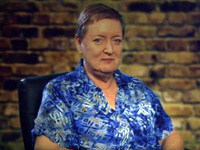
“What I see are passionate people who are serious about alleviating human suffering.”
—Susan Marcus, Executive Assistant, C-Path
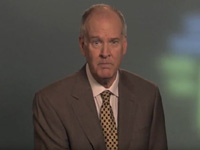
“C-Path specializes in daunting challenges…. C-Path has taken on massively complex problems, and is solving them.”
—Jack Jewett, President and CEO, Flinn Foundation
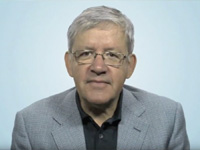
“About five years ago, we started working with the Critical Path Institute on tuberculosis: a disease which kills almost 5,000 people a day worldwide. The goal of the program was to accelerate the development of TB drug regimens, and to develop new tools that could be used in the evaluation of TB drugs and TB drug candidates…. Many people thought this could not be done, that it was not feasible. Instead, the program began to impact the way TB drugs are developed, and this is largely due to the expertise, the impartiality, and the scientific integrity which the Critical Path Institute brings to the table.”
—Jan Gheuens, MD, PHD, Deputy Director, Bill & Melinda Gates Foundation


